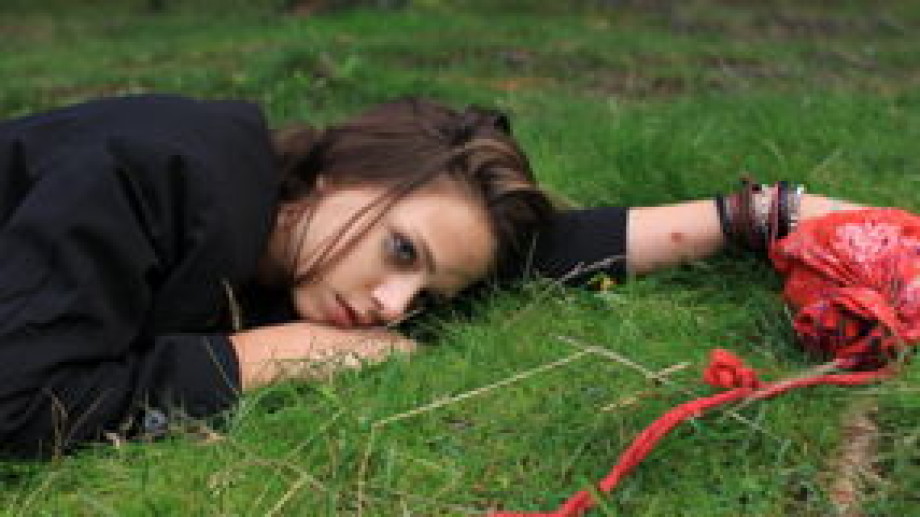With only a few hours left until opening night, the press coverage for the 49th New York Festival is already rolling in! Here are a few examples of what the critics are saying about upcoming NYFF films to whet your appetite and help you decide what to see:
Manohla Dargis for The New York Times:
“In addition to a main slate dotted with some of cinema’s brightest stars — Michelle Williams! Bela Tarr! — this year there are screenings of old goodies like Charlie Chaplin’s “Gold Rush”; a documentary program; dozens of hot-off-the-iMac avant-garde attractions; a 37-title tribute to the Japanese studio Nikkatsu; and free talks with movers and shakers.”
Also among her recommendations is Gerardo Naranjo's Miss Bala:
“The model-turned-actress Stephanie Sigman stars as a Mexican beauty queen hopeful who becomes a gangland pawn after she’s kidnapped by a cartel thug. By turns surreal and rooted in a very real, unnerving sense of place — the headlines coming out of Mexico can make its bloodletting seem tame — this fast, furious film plays like a thriller and is said to be inspired by a true story.”
J. Hoberman for The Village Voice on Once Upon A Time In Anatolia:
“Turkey’s finest filmmaker, Nuri Bilge Ceylan, has made his finest movie to date. Ceylan seems to have taken a long, profitable look at two recent Romanian movies—Aurora and Police, Adjective—before making this bravura meditation on the inscrutable cosmos. Runner-up to The Tree of Life at Cannes, Once Upon a Time’s bleakly comic, superbly crafted, highly rigorous epistemological treatment of a police investigation conducted in the dark emptiness of the Anatolian night confirms its maker’s international status.”
Eric Hynes, also for The Village Voice, on Keira Knightley in A Dangerous Method:
“The film opens on a buggy bounding for the funny farm as Knightley howls, kicks, and cackles, and her first few scenes with Michael Fassbender’s Carl Jung are a worrisome showdown between under- and overstated acting styles. Yet Knightley dials Sabina down, little by little, reining in her jaw juts and ticks until a complexly charismatic person emerges: Jung and Freud’s intellectual equal, she alone understands their theories in both her body and mind. There’s still a monster inside, but now she can control how and when to let it out.”
Bruce Bennett recommends We Can't Go Home Again for The Wall Street Journal:
“The director and his wife, whom he had met while working on the Chicago seven film, opened their door to the class. Conversations about the students' lives, politics, dreams and sexuality went to audio tape before shooting began. They become the basis for often agonizingly revealing scenes re-creating real-life encounters. … The late nights, communal living, and endless workshopping were all, as the director told his collaborators, an effort to combine 'the adventure of living with the adventure of filmmaking. This is a privileged time for making mistakes,' he explained, 'you ought to take advantage of it.' Ms. Ray's documentary, 'Don't Expect Too Much,' is as frank about Nicholas Ray's lifelong alcoholism—an addiction the director beat just a couple of years before his death from cancer—and its part in the creative journey he took with his Harpur students. 'You know what they say, the brighter the light, the darker the shadow,' Ms. Ray said. 'Let me put it this way: One of his credos was, 'an artist must expose himself.' Nick didn't hide his s—.'”
indieWIRE rounds up over a dozen reviews of NYFF films, including The Loneliest Planet:
“In 'Day Night Day Night,' Julia Loktev told the quietly experimental tale of a young would-be suicide bomber nervously wandering through the crowd of Times Square, impressing some critics if not much of an audience beyond that. Her long-awaited follow-up, 'The Loneliest Planet,' deals with noticeably broader terrain and even includes a mid-size star (Gael Garcia Bernal). Both of those factors yield something closer to a conventional viewing experience than the intentionally prosaic momentum of her previous outing. It’s a smart, mesmerizing and provocative expansion of her talents.”
Phil Coldiron reviews Carnage for Fandor:
“Every image in Carnage is the result of a restless intelligence examining a story to find the best possible expression of each moment, which means that Polanski, in only 80 minutes and a few hundred square feet, works through what can only be the tip of a seemingly inexhaustible set of blockings and compositions – which is fitting, since the ringing phone that ends the film (save a brief coda) serves as a reminder that this could go on forever. The Polanski touch manifests in his unique ability to conceive of an apartment as existing in a relationship of hysteria with its inhabitant(s) in which the space of the apartment is both a catalyst and a mirror of the occupant’s mental and/or social degradation.”
Nelson Kim highlights A Separation for Hammer to Nail:
“Right from the start, this ingeniously constructed drama challenges the viewer to take sides, and every scene that follows adds a further turn of the screw. … As the plot complications and moral ambiguities pile up, we’re forced to constantly recalibrate our understanding of the characters’ motives and actions. … It stands a fair chance of being the first Iranian movie to become a breakout indie hit here: it’s a rare and wonderful hybrid of art-film brain food and rousing, riveting entertainment—emotionally charged, furiously fast-paced, fiendishly intelligent.”
Daniel Kasman on the German trilogy Dreileben for MUBI:
“Each film in this trilogy—directed by Christian Petzold, Dominik Graf and Christoph Hochhäusler—can and does stand by itself, mysteries explained by the other features left as more powerful, unsolvable ambiguities reverberating around the frames' edges. Disassembly is easy, then, but reassembly is also possible, and strange. Without the television's producer to guide a relative aesthetic consistency between directorial entries, we have three puzzle pieces that somewhat-fit into a narrative, a space and a mystery.”
Stay tuned throughout the NYFF for more of what the critics are saying about festival films.



